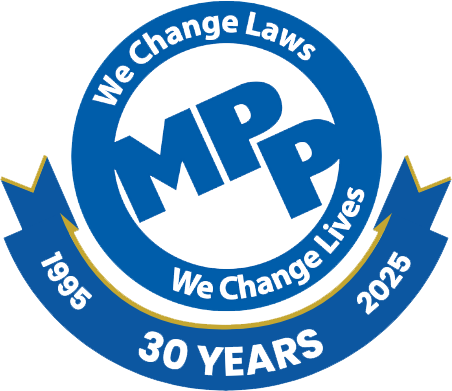- Take Action: Urge your state legislators to support a compassionate medical cannabis program!
Press Release
Maine Lawmakers Override Governor’s Veto and Approve Marijuana Regulation and Implementation Bill

FOR IMMEDIATE RELEASE
Wednesday, May 2, 2018
Contact: Violet Cavendish
vcavendish@mpp.org
Bipartisan legislation will establish a regulatory structure for legal marijuana sales and cultivation, sets timeline for implementing voter-approved initiative
AUGUSTA, Maine — On Wednesday, Maine lawmakers voted to override Gov. Paul LePage’s veto of a bill that would establish regulations for the legal marijuana market, with the House voting l09-39 and the Senate voting 28-6 to approve the measure. LD 1719 creates the rules for licensing and regulating marijuana producers, processors, and retail establishments and sets the tax rates for adult-use marijuana. The bill does not implement the portion of the voter-approved initiative that calls for social consumption lounges.
“After a long and unnecessary delay, the decision by Maine voters to regulate marijuana for adults will finally be respected,” said Matthew Schweich, executive director of the Marijuana Policy Project and campaign director for the 2016 Maine legalization ballot initiative campaign. “While this bill is imperfect, its overall effect is implementation of the legalization policy that Maine voters approved at the ballot box a year and a half ago.”
Maine approved Question 1 in 2016 and was one of four states to pass ballot measures to make marijuana legal for adults and regulate it similarly to alcohol. California and Nevada have already implemented their programs, and retail sales should begin next month in Massachusetts.
“With his veto overridden, the governor should cease his obstructionist tactics so that Maine does not fall further behind Massachusetts in establishing a system for legal and regulated marijuana sales,” Schweich added.
Marijuana is legal for adults in nine states and the District of Columbia. More than 20 states are considering bills to legalize marijuana this year.
# # #
###
Founded in 1995, the Marijuana Policy Project (MPP) is the nation’s leading cannabis policy reform organization. MPP has played a central role in passing dozens of cannabis policy reforms in states across the country, including 14 successful cannabis legalization campaigns, and also works to advance federal reforms.
